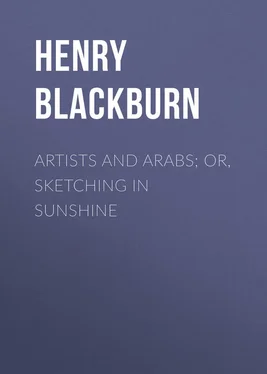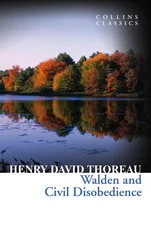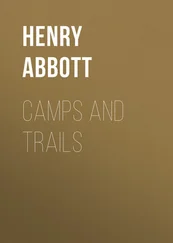Henry Blackburn - Artists and Arabs; Or, Sketching in Sunshine
Здесь есть возможность читать онлайн «Henry Blackburn - Artists and Arabs; Or, Sketching in Sunshine» — ознакомительный отрывок электронной книги совершенно бесплатно, а после прочтения отрывка купить полную версию. В некоторых случаях можно слушать аудио, скачать через торрент в формате fb2 и присутствует краткое содержание. Жанр: foreign_antique, foreign_prose, на английском языке. Описание произведения, (предисловие) а так же отзывы посетителей доступны на портале библиотеки ЛибКат.
- Название:Artists and Arabs; Or, Sketching in Sunshine
- Автор:
- Жанр:
- Год:неизвестен
- ISBN:нет данных
- Рейтинг книги:3 / 5. Голосов: 1
-
Избранное:Добавить в избранное
- Отзывы:
-
Ваша оценка:
- 60
- 1
- 2
- 3
- 4
- 5
Artists and Arabs; Or, Sketching in Sunshine: краткое содержание, описание и аннотация
Предлагаем к чтению аннотацию, описание, краткое содержание или предисловие (зависит от того, что написал сам автор книги «Artists and Arabs; Or, Sketching in Sunshine»). Если вы не нашли необходимую информацию о книге — напишите в комментариях, мы постараемся отыскать её.
Artists and Arabs; Or, Sketching in Sunshine — читать онлайн ознакомительный отрывок
Ниже представлен текст книги, разбитый по страницам. Система сохранения места последней прочитанной страницы, позволяет с удобством читать онлайн бесплатно книгу «Artists and Arabs; Or, Sketching in Sunshine», без необходимости каждый раз заново искать на чём Вы остановились. Поставьте закладку, и сможете в любой момент перейти на страницу, на которой закончили чтение.
Интервал:
Закладка:
Looking down upon the fore-deck, as we leave the harbour of Marseilles, there seems scarcely an available inch of space that is not encumbered with bales and goods of all kinds; with heaps of rope and chain, military stores, piles of arms, cavalry-horses, sheep, pigs, and a prodigious number of live fowls.
On the after-deck there are but six passengers, there is a Moorish Jew talking fluently with a French commercial traveller, a sad and silent officer of Chasseurs with his young wife, and two lieutenants who chatter away with the captain; the latter, in consideration of his rank as an officer in the Imperial Marine, leaving the mate to take charge of the vessel during the entire voyage. This gentleman seems to the uninitiated to be a curious encumbrance, and to pass his time in conversation, in sleep, and in the consumption of bad cigars. He is 6 a disappointed man' of course, as all officers are, of whatever nation, age, or degree.
The voyage averages forty-eight hours, but is often accomplished in less time on the southward journey. It is an uncomfortable period even in fine weather, just too long for a pleasure trip, and just too short to settle down and make up one's mind to it, as in crossing the Atlantic. Our boat is an old Scotch screw, which has been lent to the Company of the Messageries Impériales for winter duty – the shaft hammering and vibrating through the saloon and after-cabins incessantly for the first twenty-four hours, whilst she labours against a cross sea in the Gulf of Lyons, indisposes' the majority of the company, and the captain dines by himself; but about noon on the next day it becomes calm, and the Akhbar steams quietly between the Balearic Islands, close enough for us to distinguish one or two churches and white houses, and a square erection that a fellow-traveller informs us is the work of the 'Majorca Land, Compagnie Anglaise.'
In the following little sketch we have indicated the appearance in outline of the two islands of Majorca and Minorca as we approach them going southward, passing at about equal distances between the islands.
The sea is calm and the sky is bright as we leave the islands behind us, and the Akhbar seems to skim more easily through the deep blue water, leaving a wake of at least a mile, and another wake in the sky of sea gulls, who follow us for the rest of the voyage in a graceful undulating line, sleeping on the rigging at night unmolested by the crew, who believe in their good omen.
On the second morning on coming on deck we find ourselves in the tropics, the sky is a deep azure, the heat is intense, and the brightness of everything is wonderful. The sun's rays pour down on the vessel, and their effect on the occupants of the fore-deck is curious to witness. The odd heaps of clothing that had lain almost unnoticed during the voyage suddenly come to life, and here and there a dark visage peeps from under a tarpaulin, from the inside of a coil of rope, or from a box of chain, and soon the whole vessel, both the fore and after-deck, is teeming with life, and we find at least double the number of human beings on board that we had had any idea of at starting.
But the interest of every one is now centred on a low dark line of coast, with a background of mountains, which every minute becomes more defined; and we watch it until we can discern one or two of the highest peaks, tipped with snow. Soon we can make out a bright green, or rather as it seems in the sunlight, a golden shore, set with a single gem that sparkles in the water. Again it changes into the aspect of a little white pyramid or triangle of chalk on a green shore shelving to the sea, next into an irregular mass of houses with flat roofs, and mosques with ornamented towers and cupolas, surrounded and surmounted by grim fortifications, which are not Moorish; and in a little while we can distinguish the French houses and hotels, a Place, a modern harbour and lighthouse, docks, and French shipping, and one piratical-looking craft that passes close under our bows, manned by dark sailors with bright red sashes and large earrings, dressed like the fishermen in the opera of Mas-aniello. And whilst we are watching and taking it all in, we have glided to our moorings, close under the walls of the great Mosque (part of which we have sketched from this very point of view); and are surrounded by a swarm of half-naked, half-wild and frantic figures, who rush into the water vociferating and imploring us in languages difficult to understand, to be permitted to carry the Franks' baggage to the shore.
Taking the first that comes, we are soon at the landing steps and beset by a crowd of beggars, touters, idlers and nondescripts of nearly every nation and creed under heaven.
CHAPTER II. ALGIERS
'Ah oui, c'est qu'elle est belle avec ces châteaux forts,
Couchés dans les près verts, comme les géants morts!
C'est qu'elle est noble, Alger la fille du corsaire!
Un réseau de murs blancs la protège et l'enserre.'
THE first view of the town of Algiers, with its pretty clusters of white houses set in bright green hills, or as the French express it, 'like a diamond set in emeralds,' the range of the lesser Atlas forming a background of purple waves rising one above the other until they are lost in cloud – was perhaps the most beautiful sight we had witnessed, and it is as well to record it at once, lest the experience of the next few hours might banish it from memory.
It was a good beginning to have a stately barefooted Arab to shoulder our baggage from the port, and wonderful to see the load he carried unassisted. 2 2 It is generally admitted, we believe, that a vegetable diet will not produce heroes,' and there is certainly a prejudice in England about the value of beef for navvies and others who put muscular power into their work. It is an interesting fact to note, and one which we think speaks volumes for the climate of Algeria, that this gentleman lives almost entirely on fruit, rice, and Indian corn.
As he winds his way through the narrow and steep slippery streets (whilst we who are shod by a Hoby and otherwise encumbered by broadcloth, have enough to do to keep pace with him, and indeed to keep our footing), it is good to see how nobly our Arab bears his load, how beautifully balanced is his lithe figure, and with what grace and ease he stalks along. As he slightly bows, when taking our three francs (his 'tariff' as he calls it), there is a dignity in his manner, and a composure about him that is almost embarrassing. How he came, in the course of circumstances, to be carrying our luggage instead of wandering with his tribe, perhaps civilization – French civilization – can answer.
The first hurried glance (as we followed our cicerone up the landing steps to the 'Hôtel de la Régence,' which faces the sea) at the dazzlingly white flat-roofed houses without windows, at the mosques with their gaily painted towers, at the palm-trees and orange-trees, and at the crowd of miscellaneous costumes in which colour preponderated everywhere, gave the impression of a thorough Mahommedan city; and now as we walk down to the Place and look about us at leisure, we find to our astonishment and delight that the Oriental element is still most prominent.
The most striking and bewildering thing is undoubtedly the medley that meets the eye everywhere: the conflict of races, the contrast of colours, the extraordinary brightness of everything, the glare, the strange sounds and scenes that cannot be easily taken in at a first visit; the variety of languages heard at the same time, and above all the striking beauty of some faces, and the luxurious richness of costume.
First in splendour come the Moors (traders looking like princes), promenading or lounging about under the trees, looking as important and as richly attired as was ever Caliph Haroun Alraschid.
Читать дальшеИнтервал:
Закладка:
Похожие книги на «Artists and Arabs; Or, Sketching in Sunshine»
Представляем Вашему вниманию похожие книги на «Artists and Arabs; Or, Sketching in Sunshine» списком для выбора. Мы отобрали схожую по названию и смыслу литературу в надежде предоставить читателям больше вариантов отыскать новые, интересные, ещё непрочитанные произведения.
Обсуждение, отзывы о книге «Artists and Arabs; Or, Sketching in Sunshine» и просто собственные мнения читателей. Оставьте ваши комментарии, напишите, что Вы думаете о произведении, его смысле или главных героях. Укажите что конкретно понравилось, а что нет, и почему Вы так считаете.












